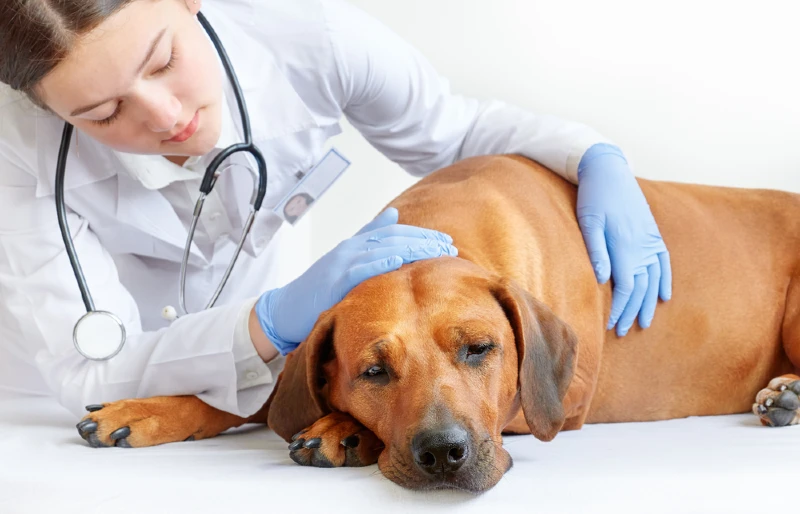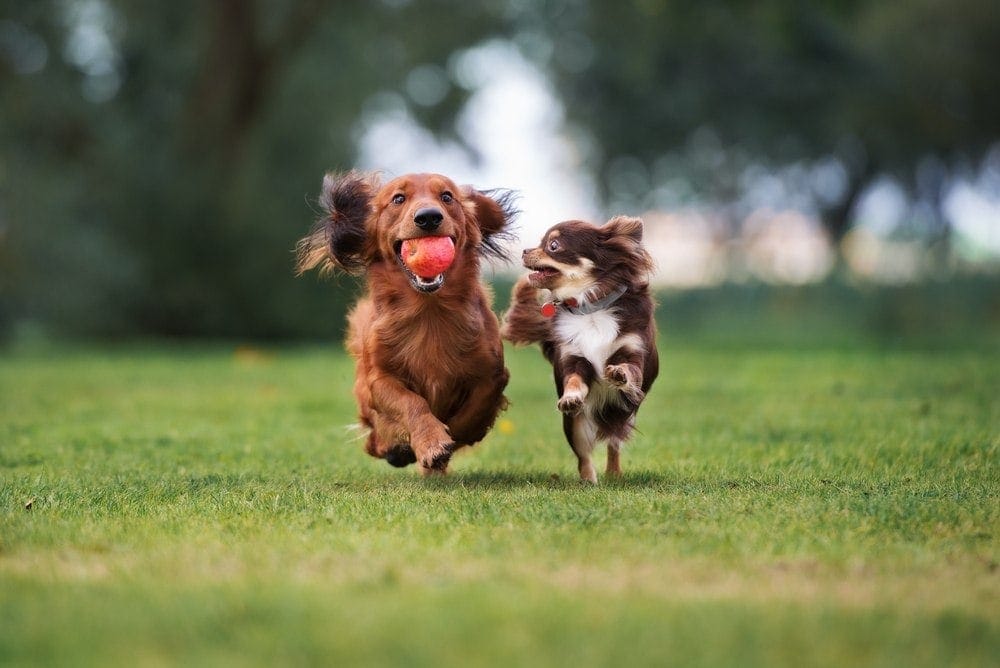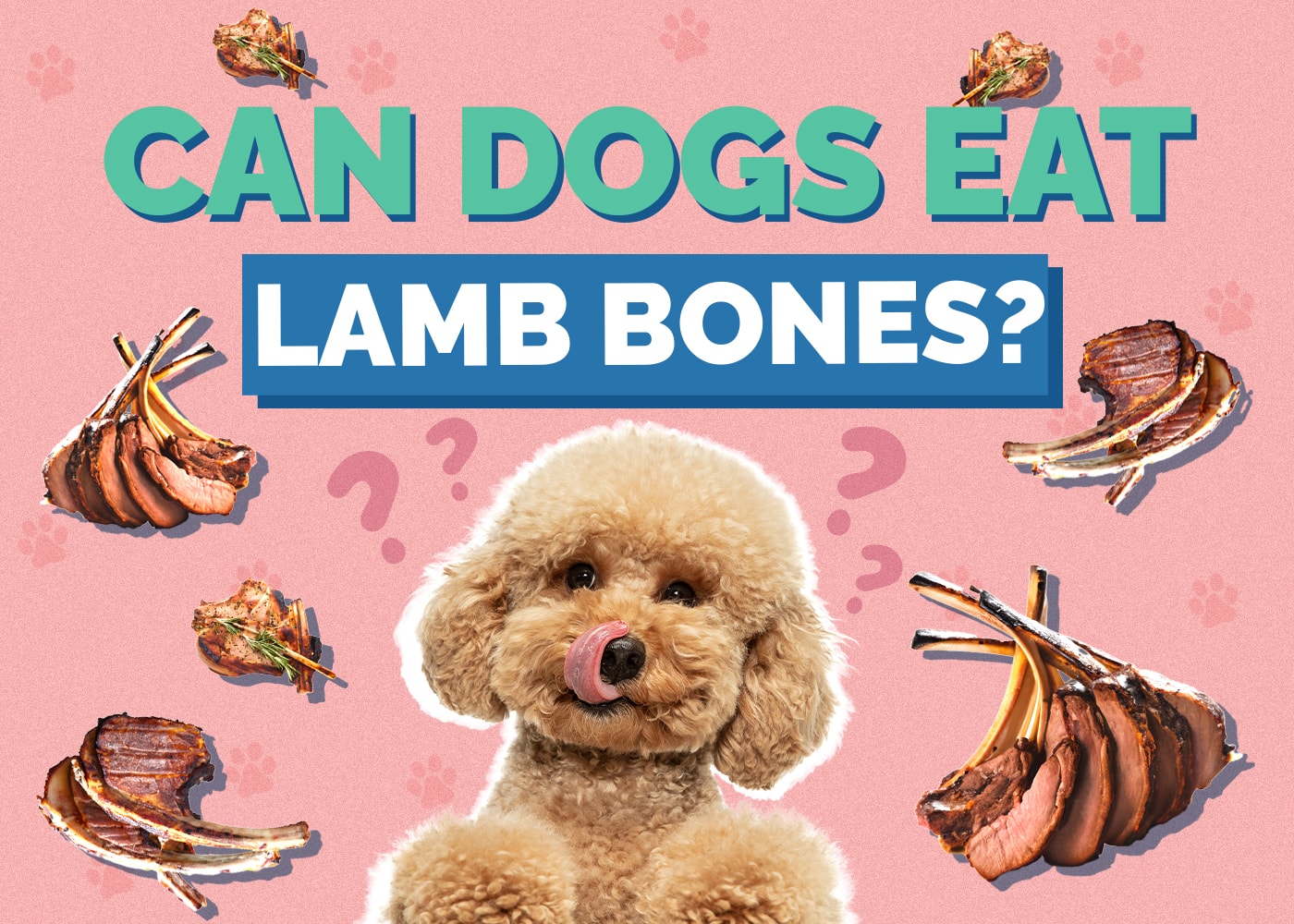Can Dogs Eat Canadian Bacon? Vet-Approved Facts & FAQ
Updated on
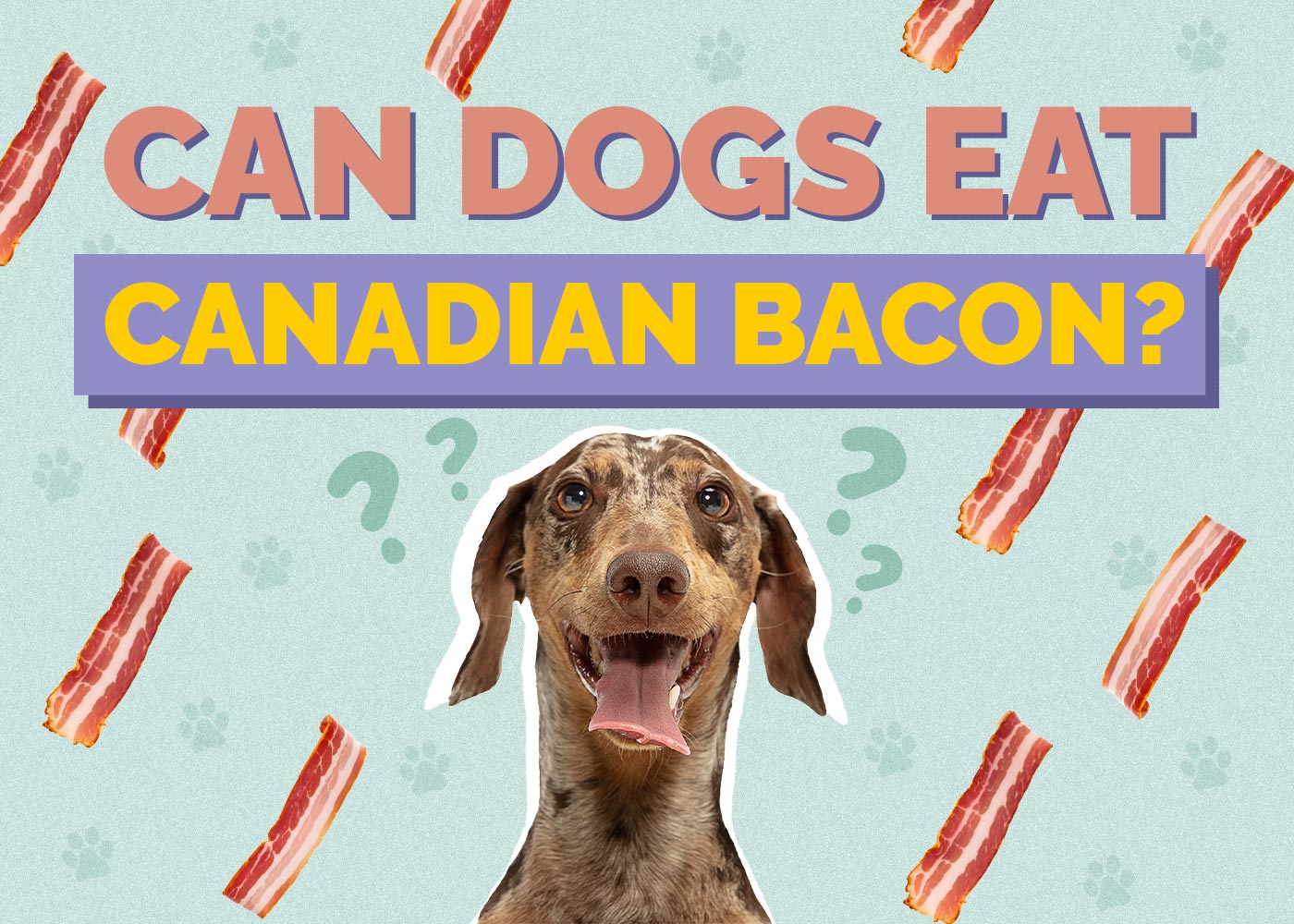
Click to Skip Ahead
If you’re a fan of a famous fast-food breakfast sandwich, you’re probably familiar with Canadian bacon. This sliced breakfast meat is fragrant and delicious, but is it okay to share it with your dog?
While it is not a toxic food, dogs shouldn’t eat Canadian bacon regularly because it’s really unhealthy for them. Keep reading to learn why we need to say no when our best friend begs us to share our Canadian bacon, plus some healthier, safer meat treats you can offer instead.
Canadian Bacon: What’s the Issue?
Canadian bacon is an unhealthy treat for dogs because of two major issues: fat and salt. While it is leaner than regular bacon, it is still a fatty food. Eating too much fat can upset your dog’s stomach. Dogs that already struggle with their weight shouldn’t eat fatty treats like Canadian bacon either.
Dogs that regularly consume fatty foods, or those that have eaten a large fatty meal, can also be at risk of the life threatening condition, pancreatitis. This condition can cause vomiting, diarrhea, abdominal pain, and in severe cases lead to sepsis and death. Dogs that have recovered from pancreatitis are at much higher risk of getting it again, so we need to be particularly careful about making sure they don’t eat fatty foods like bacon.
Even if your bacon loving canine doesn’t suffer from pancreatitis, eating foods high in fat and grease are likely to cause gastrointestinal upset, which is no fun for anyone.
Canadian bacon and other processed pork products contain compounds called nitrates, which make them high in salt. While salt is a necessary nutrient for dogs, ingesting too much can be toxic. Dog food already contains the necessary daily amount of salt, so eating salty foods like Canadian bacon may push your dog into dangerous levels.
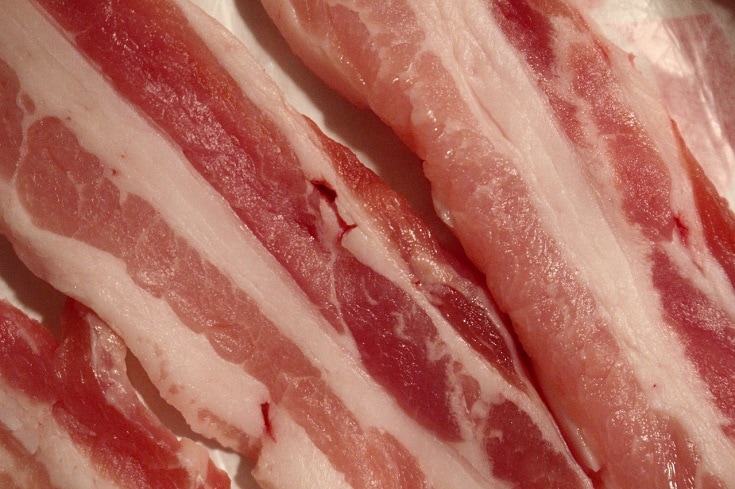
Frequently Asked Questions
I Fed My Dog Canadian Bacon Before I Found This Article: Now What?
Canadian bacon isn’t technically toxic to dogs but it’s never a bad idea to let your vet know, especially if your pup consumed an excessive amount of the product. If your pet has a history of a sensitive stomach or pancreatitis, you’ll want to keep an eye out for signs of trouble such as vomiting, diarrhea, or loss of appetite.
Can Dogs Eat Other Types of Pork?
We aren’t just picking on Canadian bacon here: dogs generally shouldn’t eat any type of processed pork or cured meats. Bacon, sausage, and ham all have similar high fat and salt content too. Dogs also shouldn’t chew on pork or rib bones because they can splinter and cause a choking hazard or intestinal obstruction.
However, cooked, lean plain pork is safe to feed most dogs as a treat. Some commercial dog foods include pork on their ingredient lists. As always, check with your vet before offering any new food, especially if your dog has food allergies or other chronic conditions.
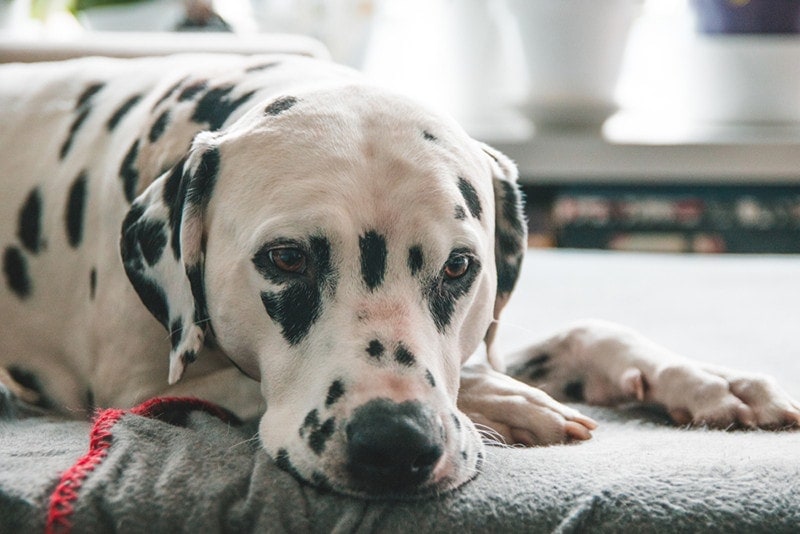
What Other Human Foods Are Safe for My Dog?
If you want to serve human food as a treat, here are some safer and healthier options than Canadian bacon:
- Lean, cooked meat
- Cooked fish
- Whole grains, such as brown rice
- Most vegetables, such as green beans, peas, and carrots
- Many fruits, including berries, apples, and bananas
Never feed your dog avocado, grapes, raisins, onions, garlic, or chocolate. Raw meat, fish, and eggs may contain dangerous bacteria and should also be avoided, and always check the ingredients list for xylitol, birch sugar or E967 – this is highly toxic to dogs.
Conclusion
Canadian bacon may be considered “healthier” for humans than regular bacon, but it’s still not the best option for your dog due to the high salt and fat content. The most important thing your dog should eat is a nutritionally balanced food formulated to meet their daily needs. If you want to offer treats, skip the Canadian bacon, and serve one of the other human foods on our list or commercial dog treats. Just remember to keep all treats at 10% or less of your dog’s daily calories.
If your dog manages to steal a small amount of bacon, they will likely be okay, but keep a close eye on them for the next 24 hours for signs of gastrointestinal pain or upset. If they have eaten a large amount, we recommend contacting your vet for advice.
Featured Image Credit: StockSnap, Pixabay




